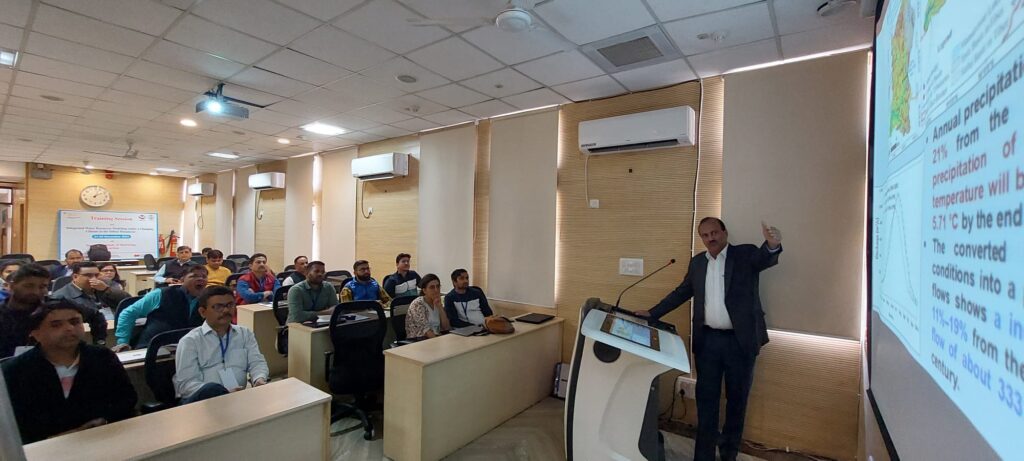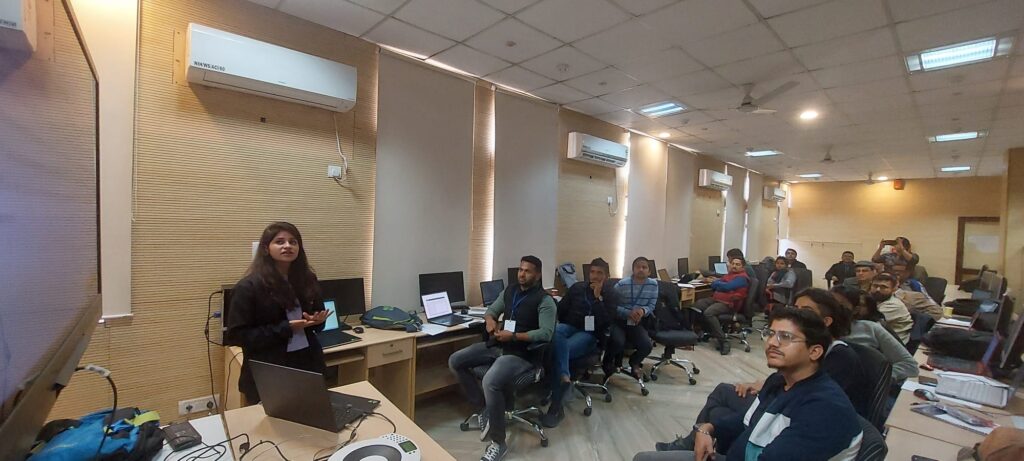FutureWater and project partners organized a training programme on “Integrated Water Resources Modelling under a Changing Climate in the Indian Himalayas”, from 21-24 November 2022 at National Institute of Hydrology (NIH), Roorkee by Swiss Agency for Development and Cooperation (SDC), New Delhi in collaboration with NIH.
To promote water security in Himalayan states of India, SDC promotes decision support tools and capacity building on Integrated Water Resources Management (IWRM). A consortium of national and international experts from FutureWater, Utrecht University from the Netherlands, University of Geneva and The Energy and Resources Institute (TERI), India was mandated to develop a glacio-hydrological and a water allocation model, develop an online Decision Support System and IWRM guidelines.
One key objective of this initiative is to undertake extensive capacity building in glacio-hydrological modelling and IWRM planning for relevant stakeholders. This four-day training program will focus on glacio-hydrological and water allocation modelling techniques to support an IWRM plan through onsite hands-on training and e-learning modules to enhance capacity of the stakeholders.
The training program was inaugurated by Dr. Sudhir Kumar, Director, National Institute of Hydrology, Roorkee. He emphasised that as the IWRM concept considers viewpoints of human groups, factors of the human environment, and aspects of natural water systems together to bring out sustainable water management strategies, it provides a “comprehensive water management” plan.
Mr. Rishi Srivastava, Chief Engineer, Basin Planning & Management Organisation, Central Water Commission (CWC), who was connected virtually, underscored the importance of developing the IWRM considering local context for it to be successful He also highlighted the importance of considering environmental water in the IWRM plan.
Dr. Johannes Hunink, Managing Director, FutureWater gave an overview of the project and Dr. Sanjay Jain, Scientist G and Head, Water Resources System Division, NIH emphasized on the importance of glacio-hydrological modelling to understand future water availability in a mountain river basin and described the activities that NIH is undertaking presently on cryosphere.
Participants for the training programme are drawn from various state government departments and educational institutions in Uttarakhand.
For more information, please visit the project page and the SPHY (Spatial Processes in Hydrology model) website.





